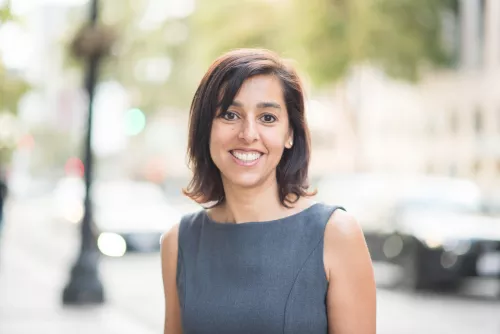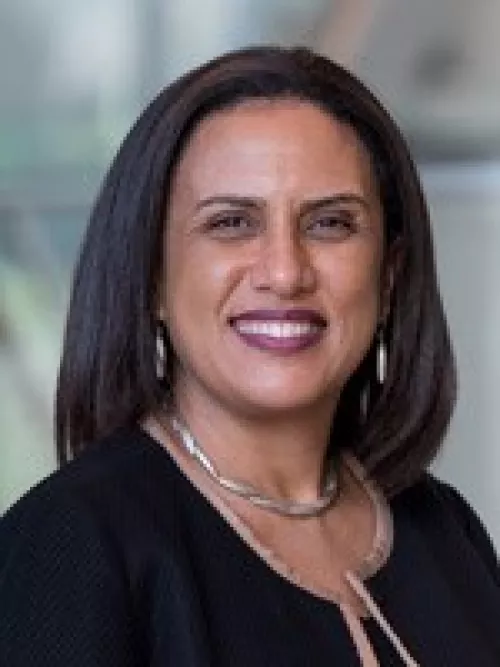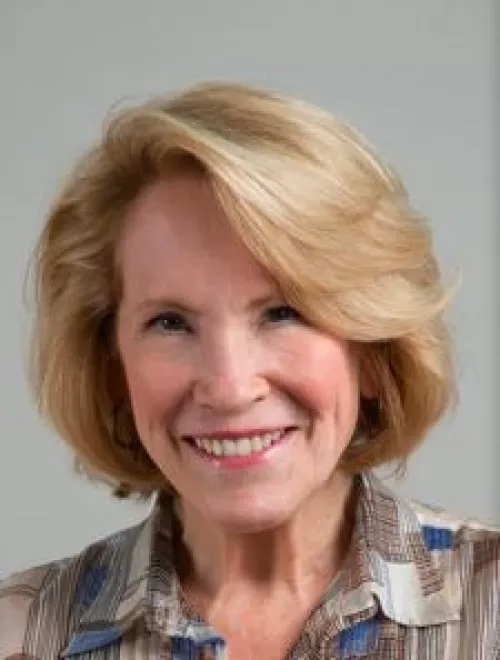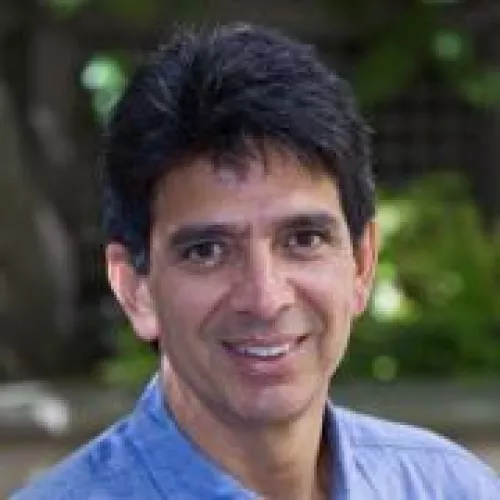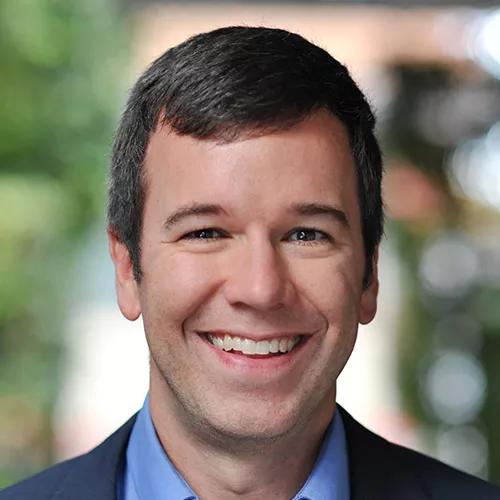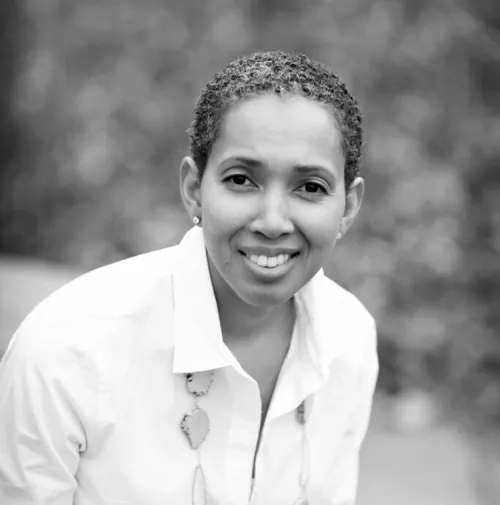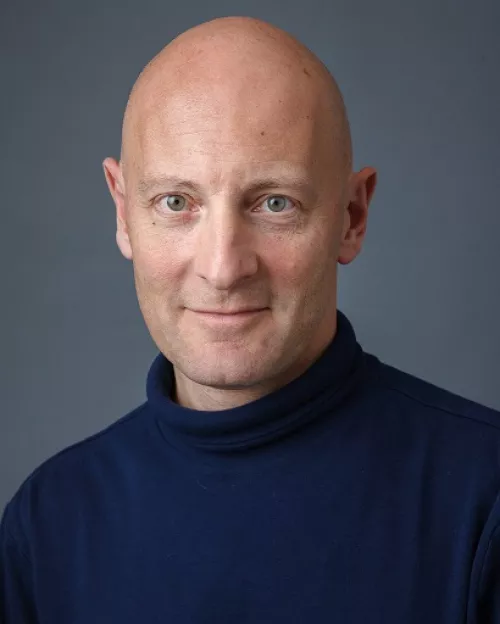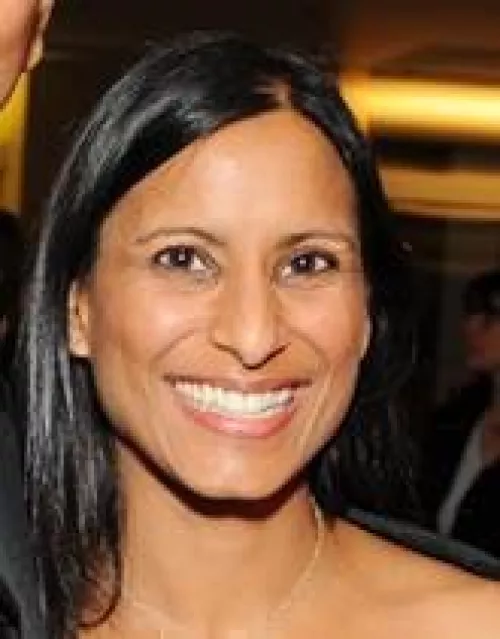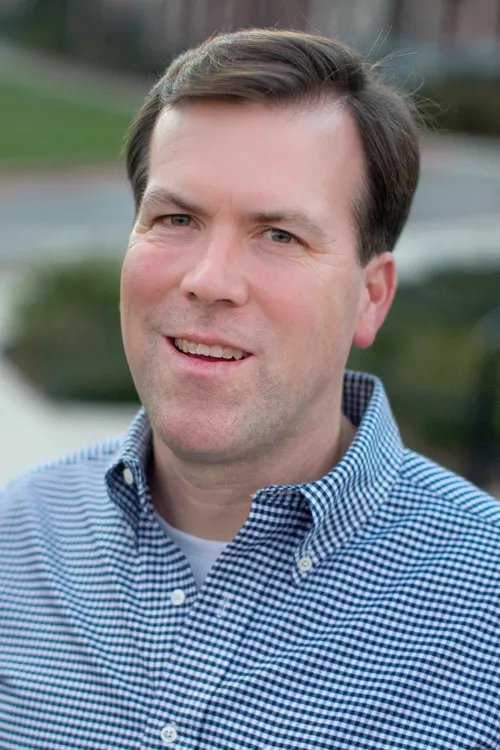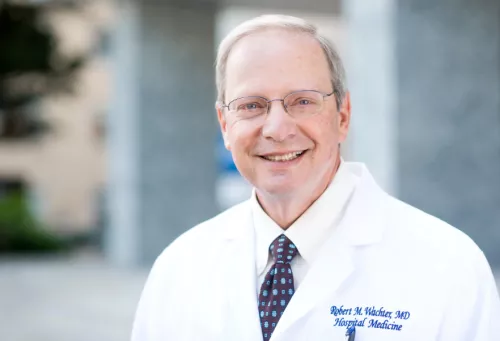Veenu Aulakh, MSPH is the Executive Director of the Medical Innovation Collaborative, a program of Acumen America. She is responsible for building the strategy and partnerships to improve the health and well-being of people on Medicaid by connecting the ecosystem to tech-enabled innovations. For almost 10 years, Veenu serves as the President of the Center for Care Innovations (CCI) where she grew the organization’s staff budget and strategy to focus on strengthening the health of under-invested communities. She was responsible for building critical partnerships and implementing the overall strategy to support the spread of innovation in safety net healthcare systems. Before joining CCI, Veenu worked as a senior program officer at the California Health Care Foundation, where she managed programs and investments to improve the access to care and health outcomes. Veenu also held several positions with Kaiser Permanente related to improving the quality of care and increasing patient engagement. Veenu received a bachelor’s degree in industrial operations engineering from the University of Michigan and a Master of Science in health policy and management from Harvard University. In her spare time Veenu enjoys climbing the hills of San Francisco and exploring foreign lands.
Kirsten Bibbins-Domingo, PhD, MD, MAS is the Lee Goldman, MD Endowed Professor of Medicine and Professor of Epidemiology and Biostatistics. She is currently the 17th Editor in Chief of the Journal of the American Medical Association (JAMA) and the JAMA Network. Dr. Bibbins-Domingo has previously served as the inaugural Vice Dean for Population Health and Health Equity in the UCSF School of Medicine. She also chaired the Department of Epidemiology and Biostatistics from 2017-2022. Dr. Bibbins-Domingo co-founded the UCSF Action Research Center for Health Equity (formerly known as the Center for Vulnerable Populations) at Zuckerberg San Francisco General Hospital that generates actionable research to increase health equity and reduce health disparities in at-risk populations in the San Francisco Bay Area, California, and nationally. Dr. Bibbins-Domingo is a general internist, cardiovascular disease epidemiologist, and a national leader in prevention and interventions to address health disparities. She had been a long-standing NIH-funded researcher who used observational studies, pragmatic trials, and simulation modeling to examine effective clinical, public health, and policy interventions aimed at prevention. Dr. Bibbins-Domingo was a member of the US Preventive Services Task Force from 2010-2017 and led the Task Force as the vice-chair and chair from 2014-2017. She is an inducted member of the American Society for Clinical Investigation, the Association of American Physicians, the National Academy of Medicine, and the American Academy of Arts and Sciences.
Molly Joel Coye, MD, MPH is Executive in Residence at AVIA, the nation’s leading network for health systems seeking to innovate and transform. AVIA's mission is to advance care delivery transformation through the effective identification and deployment of digital solutions, in partnership with a Network of more than 30 large health systems. Dr. Coye also advises technology developers, investors, national health systems, and policymakers about disruptive technologies and business models that accelerate the transformation and constrain health expenditures and serves on the advisory boards of early-stage companies and venture and private equity firms investing in healthcare information technology and services. Dr. Coye is an elected member of the National Academy of Medicine (formerly the Institute of Medicine), a member of the Board of Directors of Aetna, Inc., and also serves on the Founder’s Council of United States of Care. From 2010 – 2015, Dr. Coye was the Chief Innovation Officer for UCLA Health, where she led the health system in identifying new strategies, technologies, products and services. Dr. Coye founded and led HealthTech (the Health Technology Center), a non-profit education and research organization established in 2000 that became the premier forecasting organization for emerging technologies in health care. She also served as Commissioner of Health for the State of New Jersey, Director of the California State Department of Health Services, and Head of the Division of Public Health Practice at the Johns Hopkins School of Hygiene and Public Health. Previously, Dr. Coye served as a member and chair of the Board of Directors of PATH, one of the largest nonprofit organizations in global health, and on the boards of the American Hospital Association, the American Public Health Association, and the American Telemedicine Association, The California Endowment, and the China Medical Board. Dr. Coye received her medical degree and Masters in Public Health from the Johns Hopkins School of Hygiene and Public Health. She holds a Masters in Chinese History from Stanford University and is the author of two books on Chinese history. She also is a member of the board of directors of San Francisco Jazz (SFJAZZ), and enjoys scuba diving and international culinary adventures.
Ralph Gonzales, MD, MSPH, is Associate Dean for Clinical Innovation and Chief Innovation Officer for UCSF Health. In addition, he leads the UCSF Clinical Innovation Center (CIC), which aims to develop the infrastructure and internal capacity to accelerate innovations that solve critical delivery system problems at UCSF. CIC partners with internal and external entities to analyze, prototype, test, implement and evaluate solutions that target our organizational priorities. CIC enables clinicians and staff to discover solutions that were previously not possible before through programs that leverage resources from cross-industry partnerships. His research has played a significant role in national and global efforts to combat antimicrobial resistance by improving antibiotic prescribing practices - the body of which provides a successful roadmap for translating evidence into practice, policy and public health. Dr. Gonzales’ research is multidisciplinary, patient-centered, and informed by relevant stakeholders and policy makers such as the CDC, NCQA, professional societies and community clinicians and patients. It represents the full spectrum of translational research - from practice guideline development, to implementation of innovative health care interventions, to conducting larger community-based trials to examine the comparative effectiveness of different health care interventions.
Richard Gurley is the co-founder and CEO of Ryse Health, hybrid office-based and virtual endocrinology clinic serving patients with type 2 diabetes. He has spent his career focused on improving quality and reducing costs in the US healthcare system including groundbreaking work at TennCare, McKinsey & Company, Evolent Health, and WelbeHealth, where he built operations to deliver the PACE model of care to underserved communities. Richard has also invested in and avised a variety of early stage healthcare companies on strategy, growth, and operations. He holds an MBA from Duke University and a BA in Public Policy Studies from Vanderbilt University.
Ivor Braden Horn, MD, MPH, FAAP is director of Health Equity & Product Inclusion at Google. Dr. Horn is also an angel investor and start-up advisor. She currently serves on the board of Boston Children’s Hospital and Care Academy. She has 20+ years of experience addressing inequities in health care and has held senior and executive leadership positions across health systems, academic, and entrepreneurial environments. She is a nationally recognized leader in health equity, social determinants of health and health care innovation. Dr. Horn has expertise in driving organization change within technology and product innovation and implementing quality improvement and stakeholder engagement initiatives. She has a track record of implementing programs to improve health outcomes and establish partnerships with community-based organizations to better serve at risk populations. Dr. Horn served as Executive Vice President and Chief Medical Officer at Accolade, where she drove the transformation of clinical strategy and led the streamlining of clinical operations during the company’s rapid growth from serving ~300,000 to over a million members. Before Accolade, she served as Medical Director of the Center for Diversity and Health Equity at Seattle Children’s Hospital, Professor of Pediatrics at the University of Washington School of Medicine, and Principal Investigator on several studies investigating health equity in under-represented communities. Dr. Horn’s research has been funded by the NIH, HRSA, AHRQ, and the Verizon Foundation to research the use of technology to address health equity. She has authored several peer-reviewed journal publications. Dr. Horn received her bachelor’s degree from Spelman College. She has a master’s degree in public health from the George Washington University School of Public Health and Health Sciences. She earned her medical degree at Indiana University School of Medicine and completed her pediatric internship and residency at UCSF Benioff Children’s Hospital Oakland. Dr. Horn did her fellowship training in general academic pediatrics and community-oriented primary care at the Children’s National Health System in Washington, DC. Dr. Horn is also a nationally recognized researcher with funding from government and non-profit organizations including the National Institutes of Health (NIH), US Department of Health and Human Services (HRSA), AHRQ, and the Verizon Foundation to research the use of technology in under-represented populations. She has authored several peer-reviewed journal publications on health communication and health equity.
Ben Lenail, MBA, based in Palo Alto, CA, is a founding officer of ALD Connect, a research consortium focused on the neuro-metabolic disease X-linked adrenoleukodystrophy (X-ALD). Ben currently works for biotech company Deep Genomics. He is also on the Board of Directors of the American Brain Foundation, a mentor with the Chan Zuckerberg Initiative, and a member of investment group HealthTech Capital. Ben was previously a distinguished visiting scholar at Stanford University, and Senior Director of Corporate Development at Sun Microsystems. Ben has a Bachelor’s from Sciences Po (Paris, France) and an MBA from the University of Washington. Among his significant experience in the nonprofit world, Ben has served on the Executive Committee of Silicon Valley Social Ventures (SV2) for three years; and on the Board of the International School of the Peninsula for seven years. In his free time, Ben enjoys spending time with his family and his beloved Golden Retriever Hazel, yoga, and walking.
Pooja Mittal, DO is the Chief Health Equity Officer (CHEO) for Health Net. She leads the company in developing, implementing, facilitating, and embedding health equity strategic initiatives into Health Net’s programs, services, actions, and outcomes. Dr. Mittal joined the company in June 2016. In addition to her role as CHEO, Dr. Mittal practices primary care at a Federally Qualified Health Center in San Mateo County. She is a family physician and uses this lens to design strategic initiatives to improve care for the most vulnerable. Dr. Mittal has expertise in Digital Health and is part of Health Net’s Digital Health Transformation Committee, which ensures that the technology used by the company for Medicaid members is equitable. Dr. Mittal also dedicates her time to improving health outcomes through teaching the next generation of healthcare workers (Stanford Internal Medicine Residents). She is an Adjunct Associate Professor at UCSF and Stanford University School of Medicine. In addition to her clinical work, she has been published in the areas of well-child care, group visits, preconception care, health equity, and perinatal HIV. Dr. Mittal earned her Bachelor of Science in Biology from Boston University and her Doctor of Medicine (DO) from A.T. Still University of Health Sciences. She completed her Faculty Development Fellowship at UCSF and is a graduate of the California Health Care Foundation (CHCF) Leadership Fellowship program.
John Noonan is the founder of LifeForce Capital, a venture capital firm focused on digital health companies. Prior to founding LifeForce Capital, John served as a senior advisor at the United States Department of Health and Human Services and as the Vice President of Corporate Development at Gerson Lehrman Group. As a member of the San Francisco General Hospital Foundation’s board of directors, John is deeply committed to advancing health equity. John received his bachelor’s degree from Harvard College, his MBA from Harvard Business School, and his JD from Yale Law School.
Robert M. Wachter, MD is Professor and Chair of the Department of Medicine at the University of California, San Francisco (UCSF). He is the author of 300 articles and 6 books. He coined the term “hospitalist” in 1996 and is often considered the “father” of the hospitalist field, the fastest-growing medical specialty in U.S. history. He is past president of the Society of Hospital Medicine, past chair of the American Board of Internal Medicine, a Master of the American College of Physicians, and an elected member of the National Academy of Medicine. In 2004, he received the John M. Eisenberg Award, the nation’s top honor in patient safety. Modern Healthcare magazine has ranked him as one of the 50 most influential physician-executives in the U.S. more than a dozen times; he was #1 on the list in 2015. His 2015 book, "The Digital Doctor: Hope, Hype and Harm at the Dawn of Medicine’s Computer Age," was a New York Times science bestseller. His new book, "A Giant Leap: How AI is Transforming Healthcare and What That Means for Our Future," will be published in early 2026 by Portfolio, a Penguin-Random House imprint.
